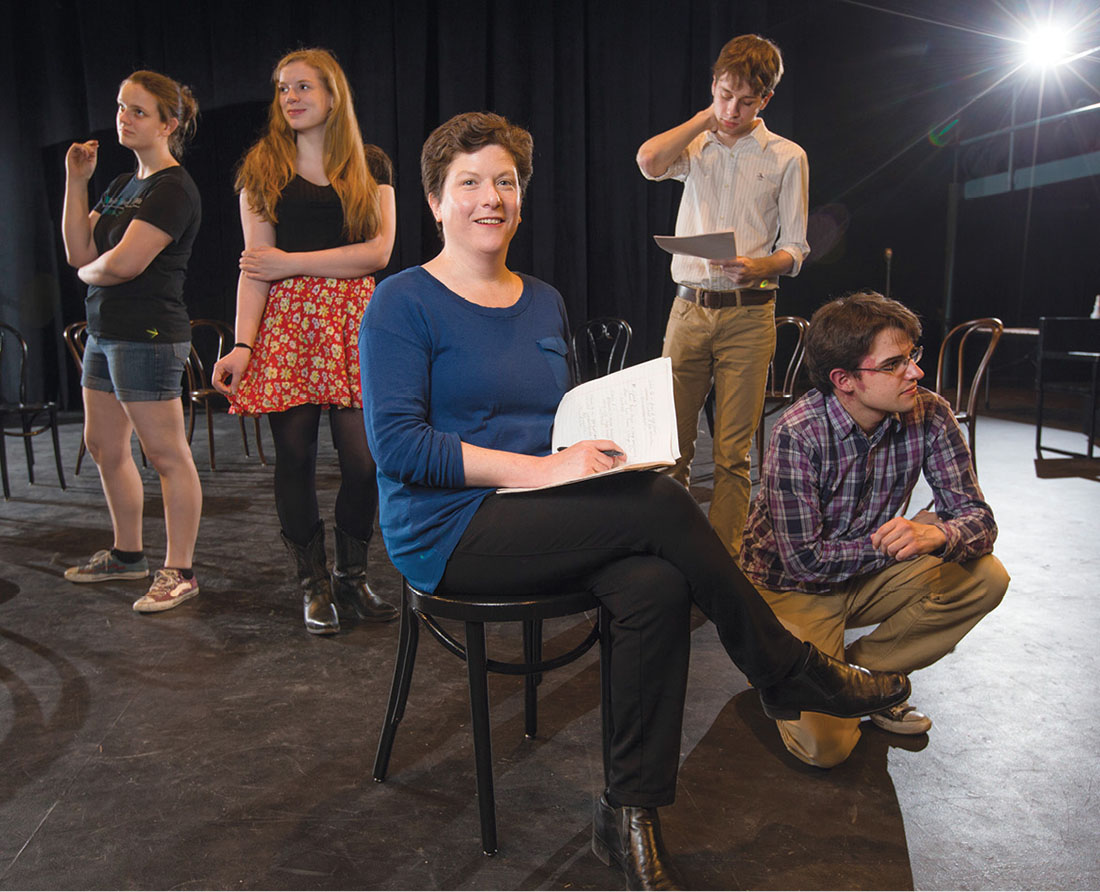For the Students, by the Students, about the Students

Growing up in the Boston area, Sheri Wilner, the Fred Coe Playwright-in-Residence with Vanderbilt’s theatre department this spring, was always writing. Painfully shy, she used writing as a means of expression, encouraged by her grandmother, who paid her a quarter for each poem.
“It was the most consistent salary I’ve had as a writer,” she laughs.
When her mother enrolled her in a summer theater program to try to bring her daughter out of her shell, Wilner found a connection that ultimately led to her current career.
“I definitely was not a performer,” she says, “but it was a great epiphany for me when I realized I could stay in theater and use a talent I was comfortable with. That’s when I realized I could combine writing and theater.”
Connection is what playwriting is about for Wilner, two-time recipient of the prestigious Heideman Award from the Actors Theatre of Louisville—connection between writer and material, between material and performer, and between play and audience.
“A play is a blueprint for what will be a living, breathing, moving work of art,” Wilner says. “The designers and directors bring three-dimensionality to it. Poets and novelists are always alone [with their craft], but playwriting is my ticket to being in a room with a lot of wonderful, creative people.”
At Vanderbilt, Wilner has just finished teaching a playwriting course for undergraduates and worked with students to create an original play, which was staged April 18–19 as part of Vanderbilt’s Festival of New Works.
“There is this big middle ground of characters 18 to 25 years of age that doesn’t exist in theater,” she says. “It’s important to start creating material that’s age-appropriate for college students to perform. I just feel that instead of colleges going crazy trying to find these plays, it would be great for them to create them.
“It always comes back to that personal connection for me. To ask these kids to play roles that are 20, 30 or 40 years older than they are, when they haven’t had those life experiences, is to ask them to stretch in ways that aren’t possible for them yet. Seeing Willy Loman [in Death of a Salesman] performed by a 19-year-old—I don’t know who that serves.
“So that was my mandate: to create material written for them, about them and by them.”
Wilner has worked previously with students in high school and college while at the Playwright’s Center in Minneapolis, helping them create their own plays. She learned quickly not to presume to know what was on their minds.
“Their thoughts and inner lives are so much more complex and sophisticated than what we give them credit for,” Wilner says. She helped them create monologues from discussions, emails and writing assignments, which they put together into a cohesive whole.
“When there is that palpable connection between artist and material,” she says, “it will move the audience in a way that having [students] do Death of a Salesman will not.”